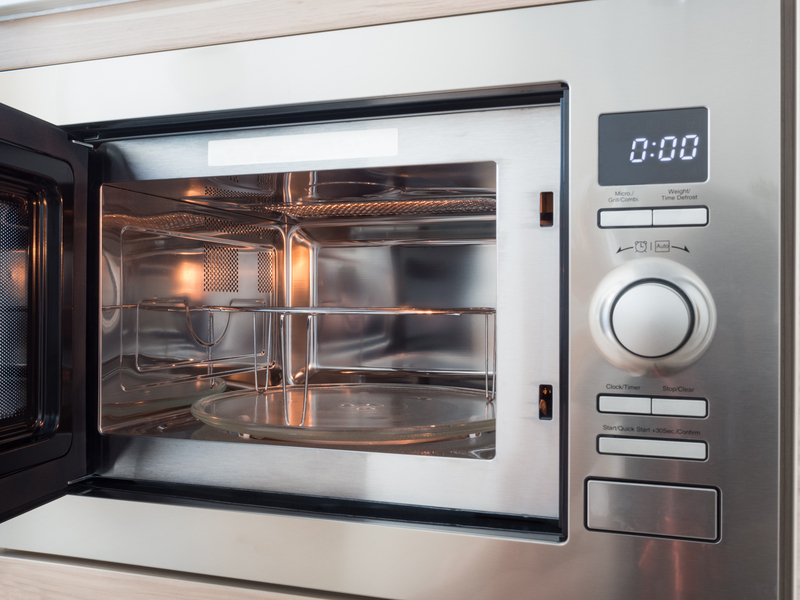Guide to Freshening Up Smelly Shoes
Posted on 24/04/2025
Are you tired of dealing with shoes that smell less than fresh? Whether it's caused by sweaty feet, damp conditions, or just prolonged use, smelly shoes can be a significant source of embarrassment and discomfort. This comprehensive guide will walk you through effective strategies to freshen up your shoes and keep them smelling pleasant.
Identify the Causes of Shoe Odor
Before you tackle the problem, it's essential to understand the root cause of the odor. Common culprits include:
1. Sweat: Your feet have numerous sweat glands, leading to moisture accumulation in your shoes.
2. Bacteria and Fungus: Warm, moist environments create breeding grounds for bacteria and fungi, which produce unpleasant odors.
3. Poor Ventilation: Shoes that lack proper ventilation can trap moisture, exacerbating the problem.
4. Wearing the Same Shoes Daily: Constant use without giving shoes a chance to air out can contribute to persistent odors.

Regular Cleaning and Maintenance
Keeping your shoes clean is the first line of defense against bad odors. Here's how:
Washing Shoes
- Material Matters: Some shoes are machine washable (like canvas and synthetic materials), while others (like leather) are not. Always check the manufacturer's instructions.
- Hand Washing: For non-machine washable shoes, use a gentle brush with soapy water. Rinse thoroughly and air dry.
- Insoles: Remove and wash insoles separately. Soak them in a mixture of water and vinegar for a deeper clean.
Drying Shoes Properly
- Air Drying: Avoid putting shoes in the dryer, as high heat can damage them. Stuff shoes with newspaper to absorb moisture and retain shape.
- Sun Drying: Place shoes in sunlight, as UV rays can help kill bacteria.
Using Home Remedies
These economical solutions can be just as effective as commercial products:
Baking Soda and Cornstarch
- Sprinkle baking soda or cornstarch inside shoes after each use to absorb moisture and neutralize odors.
- Leave overnight for the best results, then shake out the excess powder in the morning.
Tea Bags
- Place unused tea bags in your shoes to absorb moisture and leave a pleasant fragrance.
- Let them sit for a few hours or overnight for maximum effect.
Vinegar Sprays
- Mix equal parts of water and vinegar in a spray bottle and spritz the inside of your shoes.
- Allow them to air dry thoroughly before wearing them again.
Commercial Products
Sometimes, home remedies aren't enough, and you may need to resort to commercial solutions:
Shoe Deodorizers
- Available in sprays, powders, and inserts, these products kill bacteria and neutralize odors.
- Follow the instructions on the packaging for the best results.
Odor-Absorbing Insoles
- Invest in insoles designed specifically to absorb odors and wick away moisture.
- Replace them regularly to maintain their effectiveness.
Preventative Measures
The best way to keep your shoes fresh is to prevent odors from developing in the first place:
Wear Moisture-Wicking Socks
- Socks made from materials like merino wool or synthetic fibers wick moisture away from your skin and help keep your feet dry.
Rotate Your Shoes
- Give each pair of shoes time to air out between uses. Rotating your shoes will reduce moisture buildup and help prevent odors.
Use Foot Powders
- Apply antifungal or antibacterial foot powders to your feet before putting on your socks and shoes.
Pros and Cons of Various Methods
Home Remedies
- Pros: Inexpensive, easy to find, and typically safe for most shoe materials.
- Cons: May require more time and repetition to be effective, not always suitable for severe odors.
Commercial Products
- Pros: Convenient, often very effective, and designed for quick results.
- Cons: Can be expensive, may contain chemicals, and might not be suitable for all shoe materials.
Tips
- Always wear socks to absorb sweat and reduce direct contact between your feet and shoes.
- Store shoes in a cool, dry place to prevent moisture buildup.
- Consider using a shoe-drying device if you have consistently damp shoes.

Takeaways
- Regular cleaning and proper drying are essential.
- Home remedies can be effective but may need to be repeated.
- Commercial products offer convenience and quick results.
- Preventative measures can significantly reduce the likelihood of developing smelly shoes.
Conclusion
Dealing with smelly shoes is a common issue, but it can be managed effectively through regular cleaning, using home remedies, and investing in commercial products. Take preventative measures like wearing moisture-wicking socks and rotating your shoes to keep odors at bay. With these strategies, you can enjoy fresh-smelling shoes and say goodbye to embarrassing odors for good.
Latest Posts
How a Clean Home Refreshes Your Mental State
Green Cleaning Hacks for a Sparkling and Sustainable Space
Discover the Best Home Remedies for Tackling Stubborn Grease Stains




